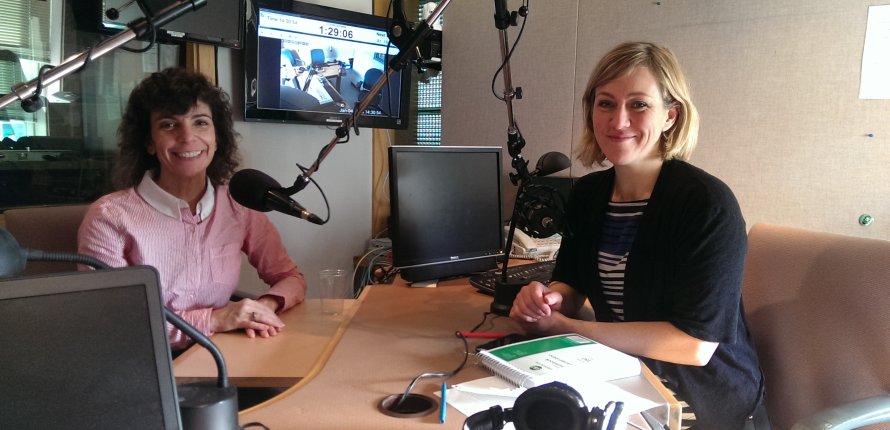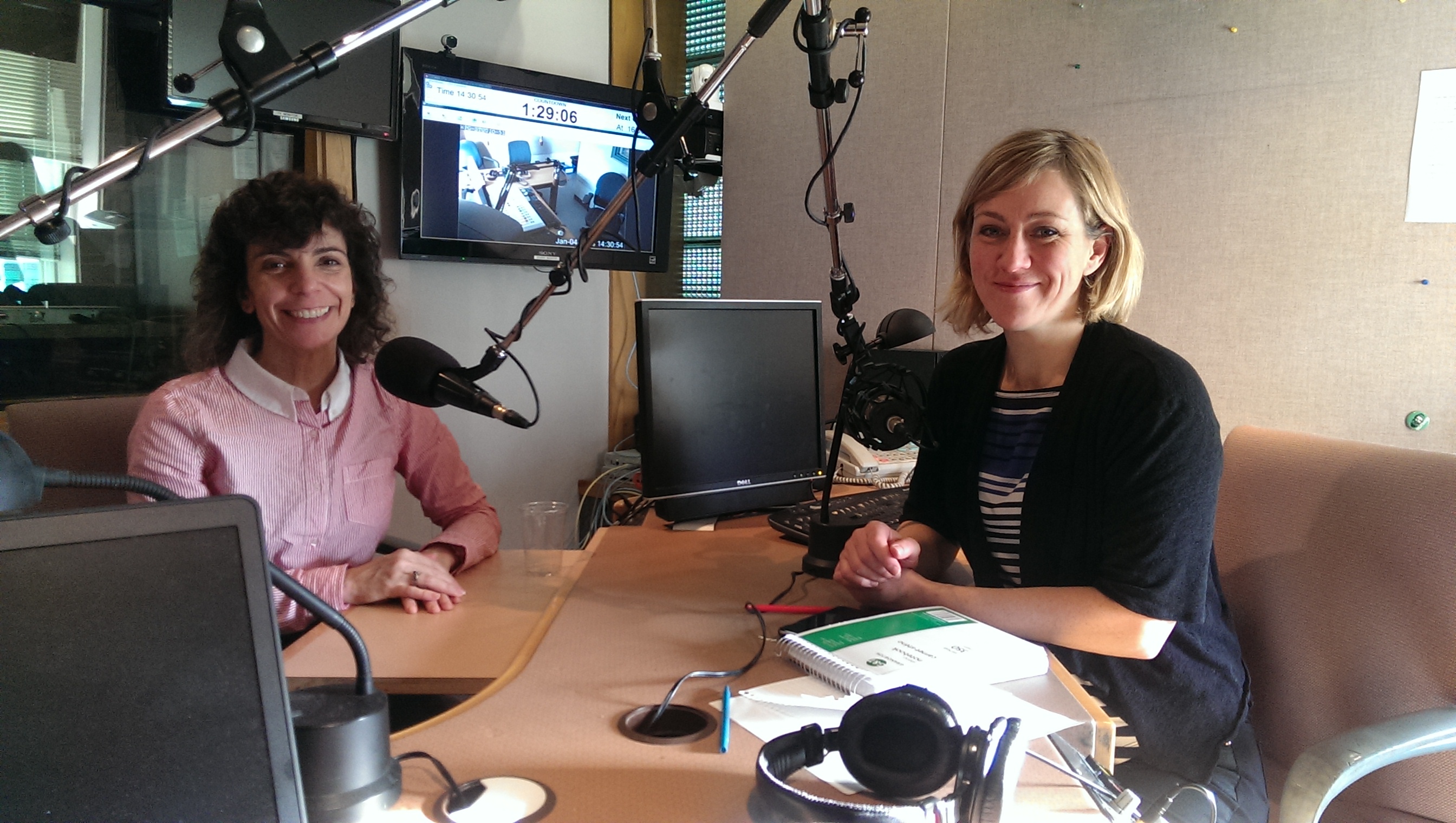Innovations in Learning: A Fulbright Specialist Contributes to Curriculum Change in Canada

Eileen Angelini, Professor of French at Canisius College
2010-2011 Fulbright U.S. Scholar to Canada, 2016 Fulbright Specialist to Canada
Thanks to my 2010-2011 Fulbright award as the Visiting Research Chair in Globalization and Cultural Studies at McMaster University, I had an opportunity to travel to Winnipeg, Halifax, Moncton, Montreal, and Quebec City. I also achieved my goal of authoring articles, delivering international conference presentations, and developing courses to expose students to the little-known reality that there are multiple Francophone regions in Canada, each with a distinct culture and history.
This was an especially important accomplishment for me as, given the close proximity of Quebec to the United States and the increased economic ties among the United States, Canada, and Mexico under to NAFTA, it is only natural that secondary and post-secondary curricula include the study of Quebec and its connections to Canada’s other French-speaking regions into their curricula. However, traditional French textbooks in the United States, particularly ones for the introductory level, rarely dedicate more than one chapter to Quebec and even less to Canada’s other French-speaking regions and to the Franco-American communities in the United States. Yet, with the reemergence of language reacquisition among the multiple Franco-American communities in the United States, educators now want to find more easily ways for making the study of French relevant to today’s U.S. students. I was particularly keen on returning to Winnipeg, Manitoba, because of the richness of its francophone community that needs to be made known to American students. I am thus particularly grateful to have been awarded a Fulbright Specialist Award to the University of Manitoba for January 3-16, 2016.
My Fulbright Specialist educational adventure of teaching French language and francophone literature courses and providing training on subjects such as language acquisition at the University of Manitoba began on Sunday, January 3, 2016. Dr. Greg Smith, Associate Dean of Arts at the University of Manitoba, was waiting for me as I exited customs at the Winnipeg James Armstrong Richardson International Airport. My arrival experience could not have been any more pleasant and reassuring. Dr. Smith took me first to my B&B apartment and then to a grocery store. He also had my first week’s bus pass for me. He made sure that I was well oriented to the area.
 The first week began with an interview with Geneviève Murchison, animatrice/host of Ici Radio-Canada’s Radio-Réveil. On Wednesday, escorted by Dr. David Watt, Director of the Institute for the Humanities at the University of Manitoba, I visited l’École St. Avilia, a French-immersion school. I had a terrific time discussing Roch Carrier’s Le Chandail with the children. The children in grades three and four really surprised me when they said that Bobby Orr was their favorite player since Orr is not a current player but is legendary in the hockey world on the same level as Wayne Gretsky, and the children in grades five and six told me that one of the hardest parts of being in an immersion program was when one’s parents could not help with homework if the parent was not francophone. My Public Research Talk, “A Little Known History of Discrimination in New England: The Ku Klux Klan Attacks on Franco-Americans in the first half of the 20th century,” led to one of the best discussions I have had with a group, so much so that Dominique Laporte asked if I would meet with his FREN 3850 class (Civilisation canadienne-française) and speak more on the KKK in New England. I also met with graduate student Patti Germann to discuss her research on Marguerite Duras and Alain Resnais and how my work on the French New Novel and film might be of assistance to her.
The first week began with an interview with Geneviève Murchison, animatrice/host of Ici Radio-Canada’s Radio-Réveil. On Wednesday, escorted by Dr. David Watt, Director of the Institute for the Humanities at the University of Manitoba, I visited l’École St. Avilia, a French-immersion school. I had a terrific time discussing Roch Carrier’s Le Chandail with the children. The children in grades three and four really surprised me when they said that Bobby Orr was their favorite player since Orr is not a current player but is legendary in the hockey world on the same level as Wayne Gretsky, and the children in grades five and six told me that one of the hardest parts of being in an immersion program was when one’s parents could not help with homework if the parent was not francophone. My Public Research Talk, “A Little Known History of Discrimination in New England: The Ku Klux Klan Attacks on Franco-Americans in the first half of the 20th century,” led to one of the best discussions I have had with a group, so much so that Dominique Laporte asked if I would meet with his FREN 3850 class (Civilisation canadienne-française) and speak more on the KKK in New England. I also met with graduate student Patti Germann to discuss her research on Marguerite Duras and Alain Resnais and how my work on the French New Novel and film might be of assistance to her.
These events, plus the ones planned for the second week of my stay, were all a vital part of the University of Manitoba’s strategic plan for curriculum change, enhancement and revitalization. In short, I strived to help my new colleagues achieve their goal of fostering creative excellence and innovations in learning. Thanks to the Fulbright Specialist Program, I was to help my new colleagues move closer to their goal of achieving creative excellence and innovations in learning.
My stay was an incredibly positive experience and far exceeded my expectations. I return to my institution with an added sense of purpose to my teaching and research goals. I look forward to maintaining contact with my new colleagues at the University of Manitoba.
